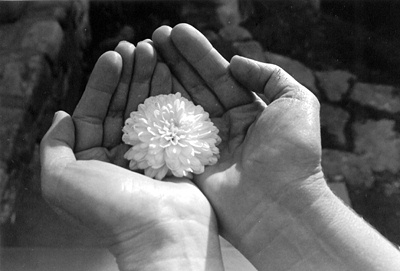All Nonfiction
- Bullying
- Books
- Academic
- Author Interviews
- Celebrity interviews
- College Articles
- College Essays
- Educator of the Year
- Heroes
- Interviews
- Memoir
- Personal Experience
- Sports
- Travel & Culture
All Opinions
- Bullying
- Current Events / Politics
- Discrimination
- Drugs / Alcohol / Smoking
- Entertainment / Celebrities
- Environment
- Love / Relationships
- Movies / Music / TV
- Pop Culture / Trends
- School / College
- Social Issues / Civics
- Spirituality / Religion
- Sports / Hobbies
All Hot Topics
- Bullying
- Community Service
- Environment
- Health
- Letters to the Editor
- Pride & Prejudice
- What Matters
- Back
Summer Guide
- Program Links
- Program Reviews
- Back
College Guide
- College Links
- College Reviews
- College Essays
- College Articles
- Back
Please Don't Leave Me.
When I was around four years old, they left me.
Papa was in his last years of university studies and wanted to obtain his master’s degree of engineering in a country beyond the oceans: America. With his departure, Mama would later be gone too, leaving me in Shanghai under the care of my grandparents. Of course, there was no way that is going to happen.
At that time, I had never been outside of China before. But I had heard America was fighting some war. I imagined my parents running through a battlefield in that other country, jumping from explosions and ducking from bullets overhead. War, I thought, is very fatal. I may never see them again.
I never shared my fears with anyone, too scared to uncover any more of the bitter truth. I did not understand their choice. All Papa told me was that he wants to go to school in America.
He left first, and did so inconspicuously. On a night where a white blanket covered the roads, Papa stepped out the silver-trimmed doorway to never be seen again. It was not until a few days later did I realize he moved to America.
Only Mama hadn’t left me yet. I had to know every detail about her departure and hug her until she missed her flight.
“Grandma,” I asked, “when is Mama leaving for America?”
“Tomorrow,” she replied.
“I want to go to the airport with her,” I said.
“Sure,” she replied.
As planned, I went with Mama to the airport. We stood on the flight ground, by the stairs that lead up to the passenger seats for a final farewell. But there were no goodbyes, no laughs, no smiles. Just silence. As if I stood face to face with my archenemy. Salty droplets rolled down my cheeks, and I ran forward to cling my body around her legs like a monkey to banana.
“Mama,” I cried, “bu yao zou.” Don’t leave.
“Get. Off.” Her icy voice was impenetrable. I did not know this tone. I never heard it before. Mama’s words were never so firm. I looked up and saw no expression on her face. I could not even tell if she was happy, sad , or annoyed. Mama brushed the back of my hair with temperate strokes , but gazed only forward, like a statue.
Still left motionless and in anguish, I had a sudden urge to use the bathroom. Not the best time, I thought, but I would be left drenched with embarrassment if I were to pee in my pants. When I rushed back for her, only a saltwater puddle was left where she stood. That spot where Mama had been standing just five minutes ago, was no longer a spot I wanted to remember. It’s now just a puddle of isolated cries, as if those cries remained unheard of; as if those cries were too small to be understood.
She had vanished. A bond between mother and son became long lost. Those tears were not there because the sun fell down nor because the stars had left the sky.
Those tears were real.
My mother and I were reunited two years later. At age six, I flew to America to live the rest of my late childhood with my parents. They had successfully ran through the war field of bullets, mines, and blood. Furthermore, they had established, in Los Angeles, a new home for a family — my family.

